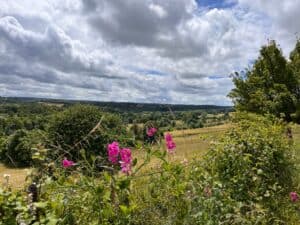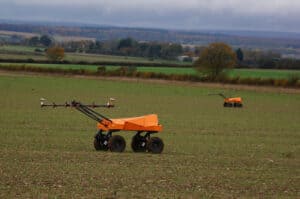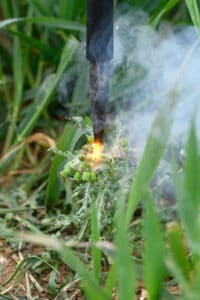The Fourth Agricultural Revolution?

Forty per cent of the Surrey Hills is designated as agricultural land, and fascinating technological changes are afoot in the world of arable farming so it’s likely some of them may be coming to our own AONB.
The first agricultural revolution took place when humans first started farming about 12,000 years ago, the second was the end of feudalism and subsequent reorganisation of farmland and the third took place in the 1950s and 1960s with the advance of heavy machinery, fertilisers, pesticides and new high yield crops. The fourth revolution refers to expected changes with the arrival of new technologies and artificial intelligence (AI) poised to solve some of farming’s current challenges.
These solutions could not only help with sustainable food production but also in the fight against climate change. Currently, most farmers decide when to drill, spray or fertilise their crop in ways that would still be recognised by their grandparents or great grandparents. They can only walk a small proportion of their fields and decide when to act based on what they can see, experience and gut instinct.
 Rowan Duckworth of the Small Robot Company explains how companies like theirs are using AI to help farmers make more informed and precise decision
Rowan Duckworth of the Small Robot Company explains how companies like theirs are using AI to help farmers make more informed and precise decision
Its vision of ‘Per Plant Farming’ uses its intelligence robot, Tom, to accurately image every plant in the field before Wilma, the artificial intelligence interface, provides valuable insights such as crop count, crop biomass assessment, and weed detection. The data from Wilma is integrated with traditional farm equipment to produce highly accurate sprayer maps.

The Small Robot Company is also designing its own non-chemical weeding robot to reduce the use of synthetic weed killers. This gives farmers an important tool against rising levels of herbicide resistant weeds such as black grass. It also allows classification and targeting of beneficial weeds to be left in situ, building soil structure and fertility and providing obvious advantages to pollinators and natural predators.
So watch out for the first robots to tend crops in the Surrey Hills near you. If you see one, you may well have read about it first here!



